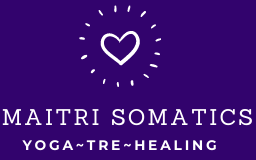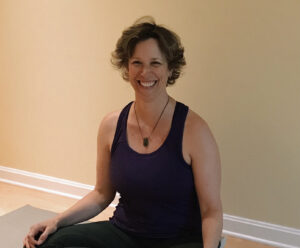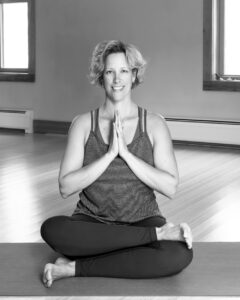“Unlike self criticism that asks if you are good enough, self compassion asks, what’s good for you?” ~Kristin Neff, Compassion Researcher
I have few memories of compassionate experiences from my childhood, and all kinds of pity party stories! (My son played the “mini violins” for me the other day, that was a short trip down memory lane).
For me, compassion was a lesson for my adulthood.
Part of growing self up means grappling with the critical habits of my mind, including all variety of commentary on the unwanted parts of myself…and a powerful critic she was! Because she was so powerful I experienced pretty intense resistance to receiving compassion, especially from myself. I believed the thought that if I’m not cracking the whip in my mind…
I’ll end up a couch potato: lazy, weak, apathetic.
My mind needs to buy in first, so I turned to the research where I learned that by prioritizing a sense of safety and practicing little and often, over time, I can change my neurobiology and gain more power to work with my critical mind habits.
Yoga’s practices and teachings of gentle consistent effort have allowed me access to deeper and richer feeling states of compassion. The yogic path invites and guides me in my self compassion journey.
Empowered in these ways I experience a calmer inner critic that is more discerning.
She might be a bit trickier to catch in the roll of my eyes or a bracing in my body, but my mind is more free and I can allow myself to be in the practice.
Emotion researchers define compassion as the feeling that arises when you are confronted with another’s suffering and you feel motivated to relieve that suffering.
*Researchers found that those who are more self compassionate:
- are more emotionally resilient (self compassion is a major protective factor against both anxiety and depression)!
- are more emotionally intelligent; better able to respond rather than react.
- have higher heart rate variability (a measure of how well your body is managing stress).
- have higher oxytocin levels (hormone of bonding) and lower cortisol levels (stress hormone).
AND here’s the kicker:
Self compassionate people are more oriented toward personal growth; procrastinate less; are happier more resilient; and learn better. MY #1 fear…poof!
May you be happy. May you be healthy. May you be safe. May you live our life in peace and ease!
*Source for compassion facts: https://self-compassion.org/self-compassion-kristin-neff/
Dr. Neff has some lovely guided practices here.





